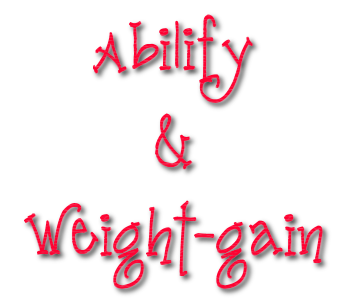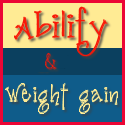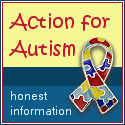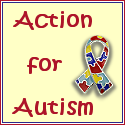It was absolutely clear for scientists that vaccines don't cause autism.
Simply because the rise of autism in countries where no vaccines are given to children mimicks the rise of autism in countries where vaccines are given, when careful, standardised diagnoses are made.
The whole way Wakefield and his team conducted the research was not up to the quality (and quantity) standards of proper research.
And... which is as important... the results couldn't be replicated.
It was interesting to see over the years that in countries where medical opinions are by law the privilege of people who are qualified to make medical judgements, people didn't belief in a relationship between vaccines and autism.
And in countries where everyone can spread his or her opinion about everything without having to take responsibility rumours were soon labeled "the truth", and people who knew how to play the media were called "experts".
I bet many of those "experts" earned a nice amount of money with appearing on TV and selling stories and alternative therapies.
By the way they targetted me when I spoke out against a link between vaccines and autism from the first moment on after I saw Wakefield's research, I knew that a lot more than believing the wrong prophet was at stake.
The way that for instance Jenny McCarty waved even the undisputable statements of The Lancet away was a clear illustration of how people can stick to their wrong assumptions.
And it's a pity that people just follow her blindly, instead of questioning themselves why on earth they hand themselves and their opinions over to someone who is in confict with doctors and scientists all the time.
Persistence is an honorable characteristic, but knowing when to change your mind and opinion in the light of overpowering evidence is at least as honorable.
But maybe I'm just lucky to have seen the signs and signals of autism in my 4 boys way before their vaccinations.
And maybe I'm lucky to accept that we don't know everything, and that nature is a strong force and we know just only part of what it does and how it works.
Science began with simple questions: why does something happen, how does it happen?
And from these simple questions people struggled to create a system to draw conclusions and to describe how reliable they are.
They used a lot of common sense in that they wanted to be able to get the same results when the same methods to find them were used.
Every day experience taught that when something occured once it wasn't a guarantee it would happen again, and that when events occured in a certain order that didn't mean the first event caused the second.
So they tried to control events to see what happened.
Research isn't a backyard game for those who like to see what they want.
Research is subject to lots of rules and requirements which have emerged in a long process.
This guarantees carefullness and limits the amount of mistakes, but it also limits the rate of development.
And all the time scientists have to describe what they do, because others should be able to get the same results under the same conditions.
Science doesn't create make-belief, but it does describe and recreate reality in such a way that others will be able to get the same results and won't see what's not there.
I know there are parents who keep saying that vaccines caused autism in their child.
They subject their (other) children to preventable health risk by not vaccinating.
Their children will call them to responsibility later in life.
But why would they stick to drawing conclusions from two events that took place in the life of their children?
Is it to flee from the rotten feeling that maybe genetics plays a role and that we, moms, conceived without knowing we would cause autism in our children?
Is it to forget what we ate, because maybe a cause will be in our food?
Or is it to push away the chilling fear that we might have seen the signs and signals of autism in our children earlier, so our child would have has better support?
It's for all of us as individual persons to answer to the questions life poses.
One of the main questions is: do we have enough knowledge to draw certain conclusions and do we want to take responsibility for what we tell others?
And do we have the guts to change our minds when we need to?
At least and at last the Lancet took action.
It should have happened a lot earlier.
We need your help to bring a very pressing problem straight into the limelight in such a way that no-one can deny the problem.
Lots of autistic children are prescribed medication which helps them in a way, but which also causes uncontrollable weight gain up to a pound per week.

I need to hear from parents whose autistic child is using abilify.
Help me find them.
Please display this banner on your site to reach out.
Parents can contact me by using the contact button at the top of this site.
Please use: "Abilify and weight" in the subjectline so I'll catch your mail at once.
New research shows people with autism have more language problems than only taking things litteral.
Cathelijne Tesink, from the depertment of Psychiatry of the Nijmegen University UMC St Radboud and the Donders Institute for Brain, Cognition and Behaviour.
She knew that people with autism experience problems with complex language, and often can't understand jokes, for instance.
She wanted to know whether the language problems are only limited to complex language or whether basal, implicit language poses problems too.
Because spoken language is embedded in the information the speaker and his voice tranfers, distorted perception of the speaker might interfere with understanding of what's said.
She offered people with and without autism sentences which belonged or didn't belong to the voice who was saying them.
Like a child saying that he always drinks a good glass of wine before going to bed, and a grown up saying the same.
Both groups (those with autism and those without) were aware that something strange happened.
In both groups the brainscans registered activity in the language center of the left hemisphere.
But... in autistic people the same area in the right hemisphere was activated too.
Like their brains needed to compensate something to arrive at the correct interpretation.
This finding is in line with the earlier findings that people with autism take language literally and that they have difficulty interpreting the context of language.
(And it also is in line with my observation that many autistic people need more time to process language and children need more explanation to understand language.)
The brainscans showed another difference.
When processing the correct sentences people without autism activated a brain area that is involved with self reference.
This area is active in the evaluation of oneself and others.
This area was not activated in people with autism.
This is the first time scientific research shows that people with autism use compensating neurological mechanisms even for normal daily language.
Even the most basic levels of language understanding are involved.
This is a huge step forward to a new way of diagnosing autism.
Research was published in: Brain
Ever done this game:
People are all standing or sitting in a line.
Someone writes down a message and goes to the first person and whispers a message in his ear.
This message is whispered in the ear of the next person, etc etc.
At the end the message is collected and written down.
There's a large chance the message is transformed during the process.
That's what happens with scientific research.
A researcher finds data which are translated into a conclusion about the researched subject.
This conclusion is summarised, and there it goes: the media, all sorts of people, on and on it goes...
You'll understand what the result is. :)
One way scientists battle this problem is very simple:
Mention the source of the information and the place where to read the precise details of the research.
That way relevant information can be found within minutes.
My advice is to do that too when you write a blogpost, an article or anythings else.
Such a little effort for such a great result.
Take the message: "Autism can be cured" or "children can recover from autism."
This message refers to a research presentation at a conference by professor Deborah Fein of the University of Connecticut psychology.
I haven't found the exact text of her presentation, so I have to go by reports from those who attended the conference. (So that's seceond hand knowledge).
The results are from 20 children. (Far from being enough to draw acceptable conclusions.)
The study involved children from 9 to 18.
It's not clear whether the ages also involve the first diagnosis. But I have to assume not, because it was said children were diagnosed before age 5.
I have no access to the diagnostic criteria, which troubles drawing a conclusion.
And I have no idea which neuropsychological tests were used.
Some of those tests will be done better a second and third time, regardless of improvement of the autism.
Interesting is the description of the group of children that showed improvement:
Many have been diagnosed with relatively mild cases of autism, many also have above-average IQs. At age 2, many were within the normal range for motor development, able to walk, climb and hold a pencil.
Interesting is that it was told that in most cases improvement was already seen at age 7.
(Which suggests late onset development, instead of real autism. But again, I haven't seen her diagnostic criteria.)
75% of the children had other disorders, which raises the question whether these children had autism at the time of diagnosis, or displayed autistiform behaviour as a symptom of an underlying problem.
The children all received intensive therapy during the main part of the week.
In fact Fein published nothing new.
Former research conclusions reported 3 to 25% of improvement of autistic behaviour towards acceptable behaviour.
The results of Fein, 10 to 20%, is well within that range.
In fact the media could also have reported:
Less children are cured from autism.
Fein acknowledges that most children will remain autistic, despite lots of therapy and other ways of intervention. With other words 80 to 90% of the autistic children will have to battle autism all their lives.
That pretty opposes all those tweets, blogposts and articles telling me there's a cure for autism.
Ofcourse I want hope, but no false hope.
Do you know where I've found hope?
Here.
Maybe wanting to normalise autistic people is not curing them at all.






